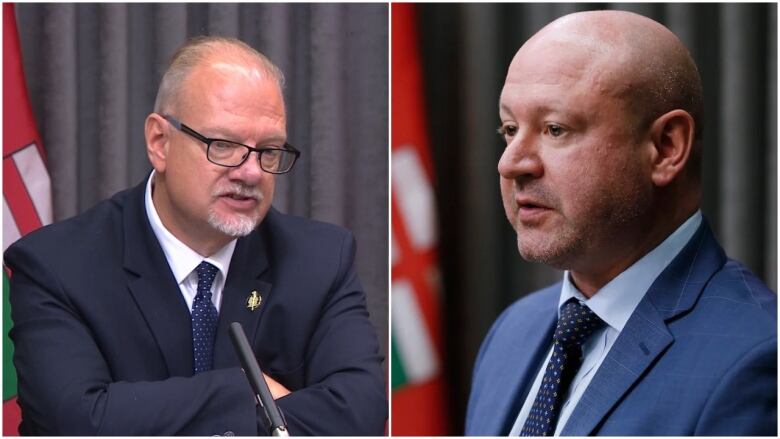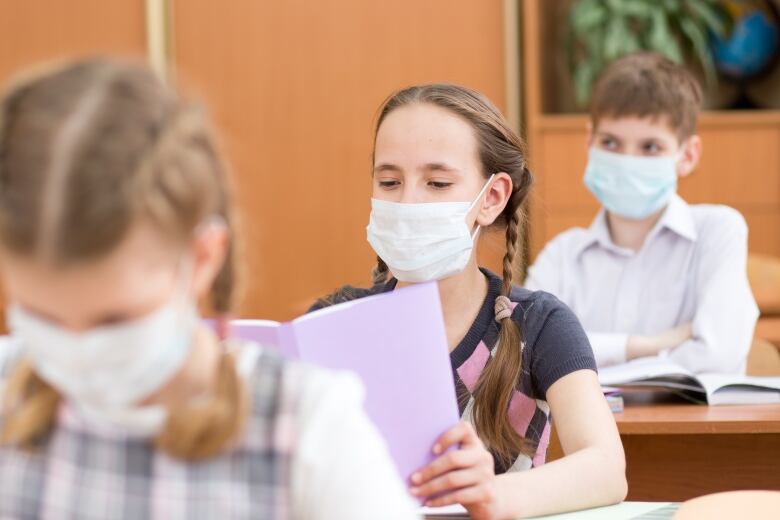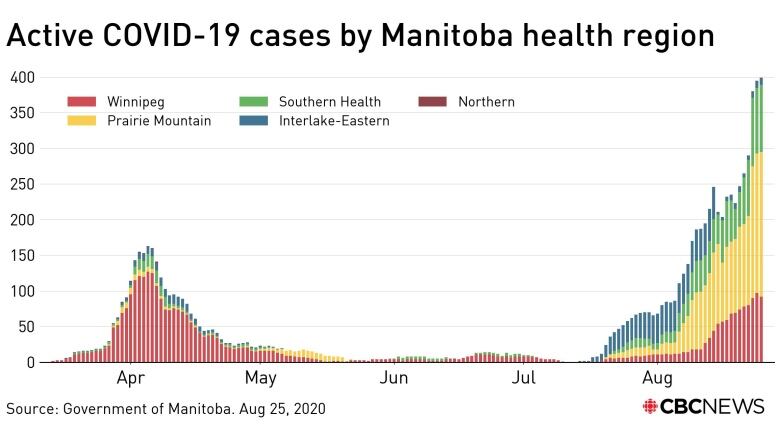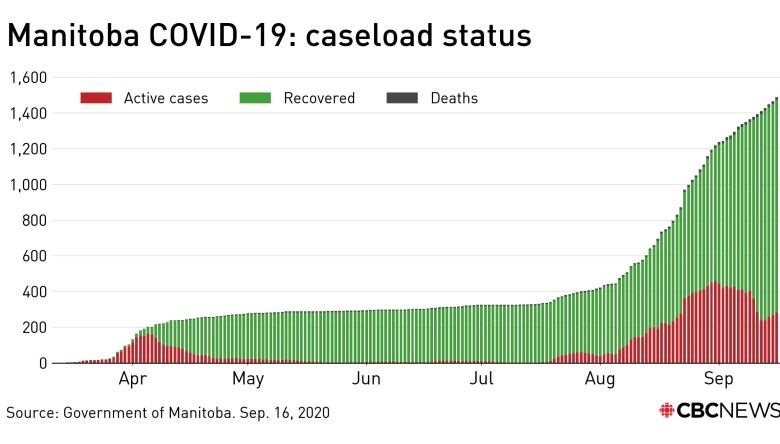Parents give pop quiz to Manitoba health leaders during town hall on back-to-school plans
Questions during telephone conference touch on cohorts, back-to-class anxiety, substitute teachers and more

Thousands of Manitobans had the opportunity to remotely take part in a town hall Tuesday night to raise their back-to-school concerns with government officials.
Manitoba Education Minister and Chief Provincial Public Health Officer Dr. Brent Roussin fielded questions from 17 people, most of them parents, over the hour-long phone call.
Questions covered concerns over the lack of a mask mandate in schools, substitute teacher availability and movements across institutions, and how cohorting and contact tracing will work in the likely event that a student or staff member tests positive.
Among other doubts and fears, parents also pressed for more clarity on accommodations for immuno-compromised families, supports for students with exceptional needs, and resources for children with anxieties about heading back to class.
Earlier in the day, Manitoba registered two new COVID-19 deaths, and its active case load grew to 235.
The provincial government released its updated back-to-school guidelines for parents and divisions last week.
A number of divisions revealed their specific plans in the days that followed, with more expected to share information in the days to come.
But even as details emerge, parents on the call suggested they either aren't happy or feel uncertain about the government approach to some issues.
Why no mask mandate?
At least two callers asked why masks aren't being mandated for everyone in schools, or at least for staff and students in middle and senior years.

"I think if this is going to be our new normal, it's something that students and staff would have to just get used to for the hopefully short-term but maybe for a bit longer than that," said Marge from St. Andrews, suggesting students of all grades should wear masks.
The provincial guidelines currently strongly recommend, but do not mandate, mask use among all staff, as well as students in grades 5-12 while in school. Masks must be worn by students in that bracket who ride the bus.
The Public Health Agency of Canada currently does not advise mask use among students 10 and younger, and Roussin explained why the province is following that outline.
'I feel like I'm having to choose between my daughter's health and my other two [children's] education- Caller named Nicole
He said the virus doesn't seem to be transmitted at a high rate among younger children.
"The other thing is just the expectation of adherence to proper mask use, and so the amount of times that these kids would be touching their face and bringing the mask down is really counter-productive," he said.
Roussin said Manitobans have generally followed public health recommendations since the pandemic arrived in March, which is another reason why he hasn't yet mandated masks.
Back-to-school anxiety
Another caller described how her daughter was struggling academically and was in the middle of a psychological assessment when the pandemic hit. The mother said she is also one of two family members cleared to visit an older family member in care.
"This is just an added anxiety for a child like mine who needs in-person learning but also has added anxiety on top of what she's already facing academically with a grandma in a nursing home on oxygen who's dying, so she's very afraid to bring it home," she said.
"I don't really know how a school would deal with a situation like mine."
Goertzen pointed to the mental health and well-being guidelines for divisions. He suggested all divisions should have supports ready for students who might be experiencing anxiety, and families can expect to work on individualized plans for their children in the coming weeks.
"There is going to be an increased anxiety among young people, but we don't know to what extent," he said.
"There is a lot of learning that's happening so there are resources in place."
Immuno-compromised family
The province has said medically fragile students who receive a recommendation from a health professional to stay at home can do so. Other students, including those with common chronic conditions, are generally expected to attend school.
A caller named Nicole said asked about households that include a vulnerable family member. She has several children, including an immuno-compromised adult daughter with Down syndrome.

"We've had all our kids home for the last five months," she asked, hinting that schools should still provide the option of remote learning for homes like hers. "Flu season is coming. I feel like I'm having to choose between my daughter's health and my other two [children's] education. Why can there not be a compromise?"
Roussin acknowledged there are unique circumstances like those outlined by Nicole that the province is still looking into how to address.
Cohorts and contact tracing
The province has advocated for schools to implement a cohort model grouping the same students together each day and week when space constraints make the advisable two-metre distancing guideline impractical.
Two callers raised questions about this namely regarding why there aren't any firm rules restricting substitute teachers from filling in at multiple different schools, and what would happen in the event a student in a cohort tests positive.
Our expectation is that teachers will be that two metres removed from the students.- Education Minister Kelvin Goertzen
"Does the cohort of students then have to self isolate the 14 days, or do they just watch for symptoms?" asked a caller named Tracy.
Roussin said school administrators will be notified, then the school community and all of Manitobans.
Health officials will carry out contact tracing protocols when a student or staff tests positive, including looking into close contacts who spent greater than 15 minutes within two metres of the positive case, said Roussin.
It's possible an entire cohort, which can number up to 75 students, could have to isolate, but it could also end up being a small number of close contacts
Substitute teachers
A caller named Sean worried that if substitute teachers could be exposing themselves and multiple cohorts if they're moving from school to school.
Goertzen said when the pandemic began, many other jurisdictions experienced outbreaks in personal care homes with ties to workers who moved between facilities. In contrast to that example, he said nurses do considerably different work than teachers or substitutes.
"Sometimes any kind of [distancing] isn't possible for a nurse working in a personal home," he said. "Our expectation is that teachers will be that two metres removed from the students."
More information about the townhall is expected to be posted on the province's website.













_(720p).jpg)


 OFFICIAL HD MUSIC VIDEO.jpg)
.jpg)



























































































